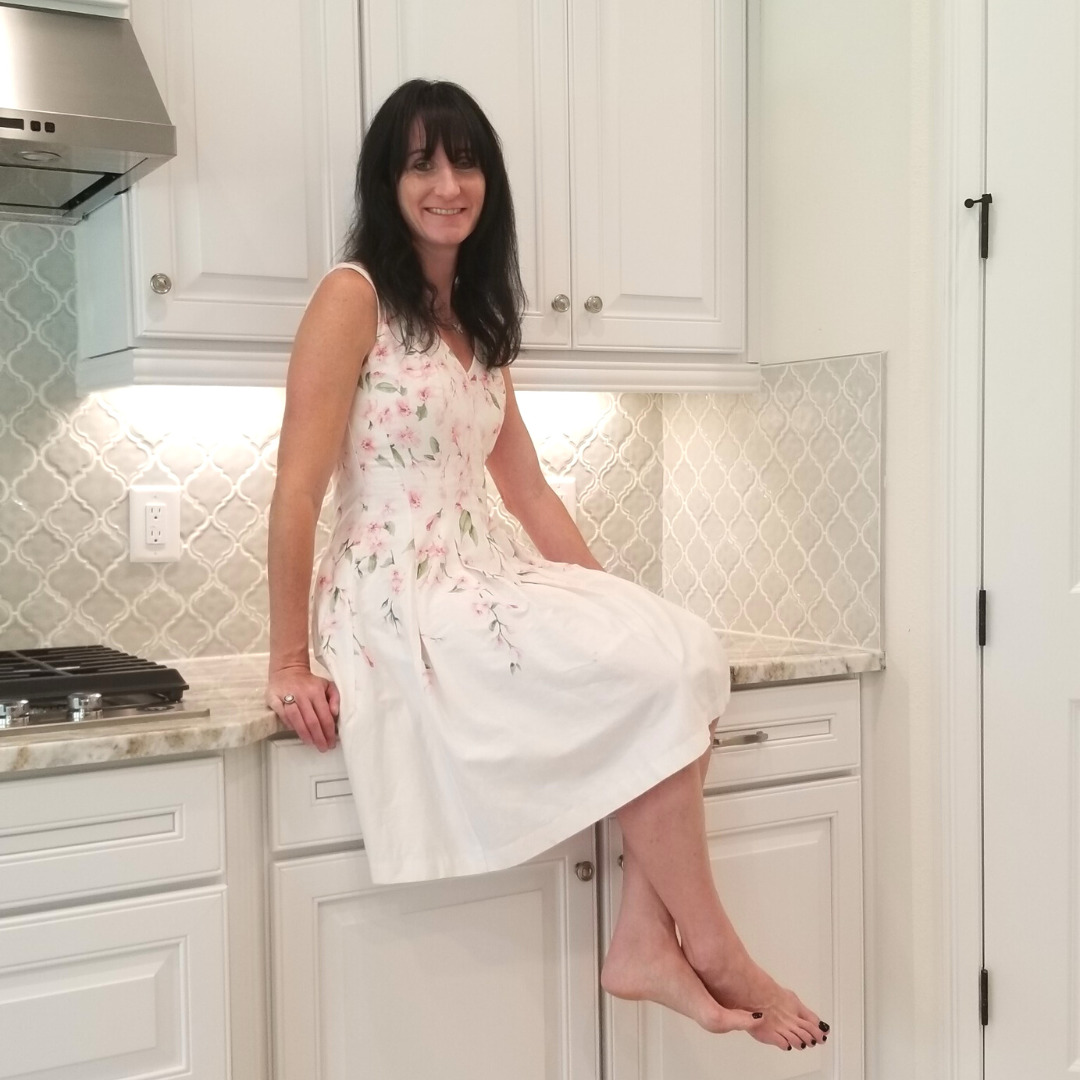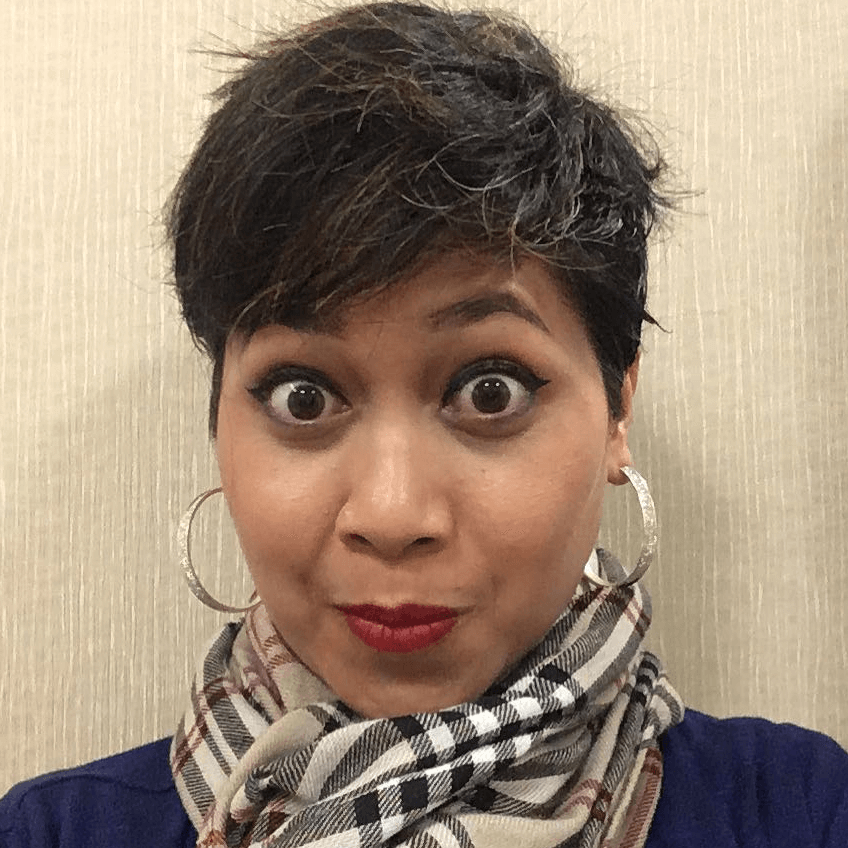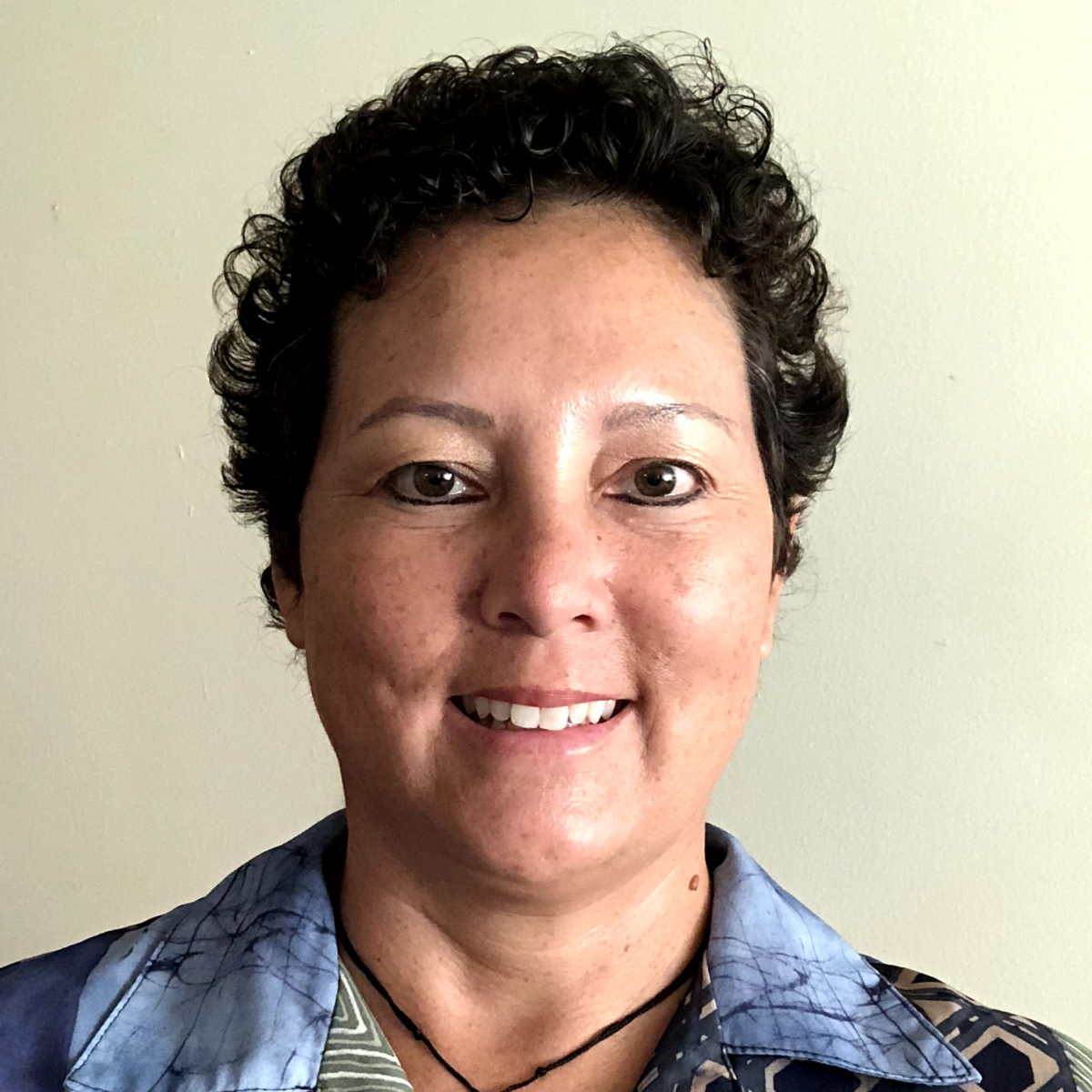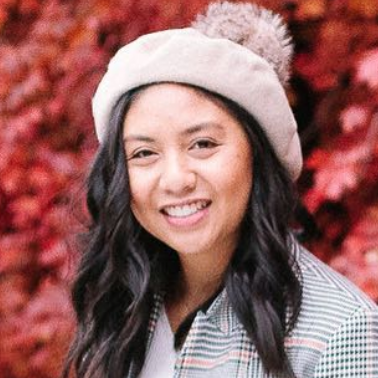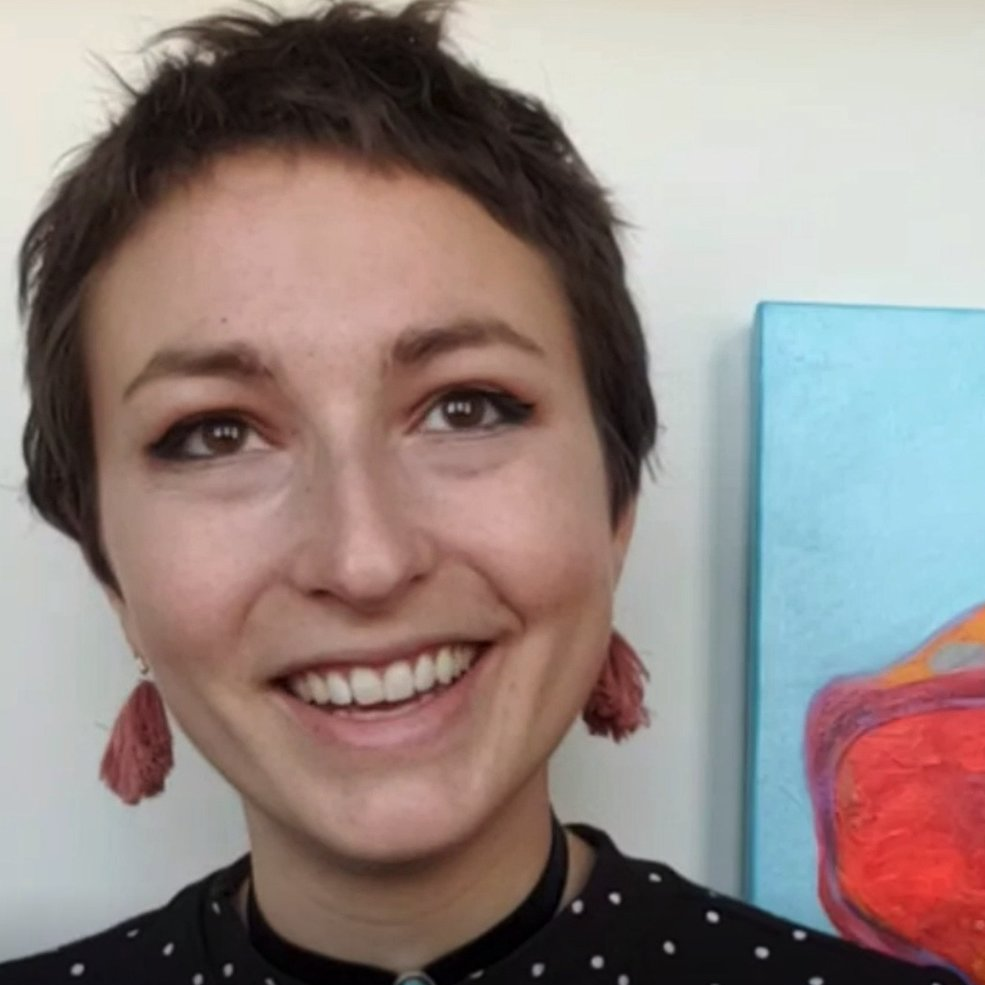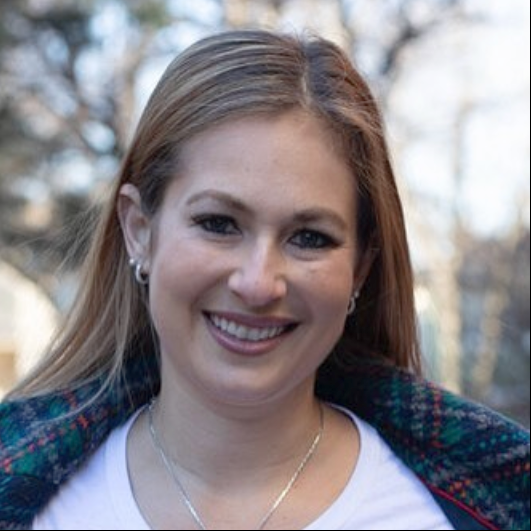Cynthia’s Stage IDC Breast Cancer Story
Cynthia was someone who never missed an annual mammogram. Then in 2018, her mammogram revealed possible distortion. She was later diagnosed with stage 2B invasive ductal carcinoma breast cancer.
Her doctors revealed that the tumor may have been growing for 5 years, but was missed in previous mammograms due to dense breasts.
Out of feeling alone and uneducated about her diagnosis, Cynthia began Learn Look Locate, a growing global community for those with breast cancer that champions cancer education and support.
Cynthia shares her cancer story with us, the importance of being a patient advocate, and her hopes of educating people on breast cancer in a world where it is becoming increasingly common.
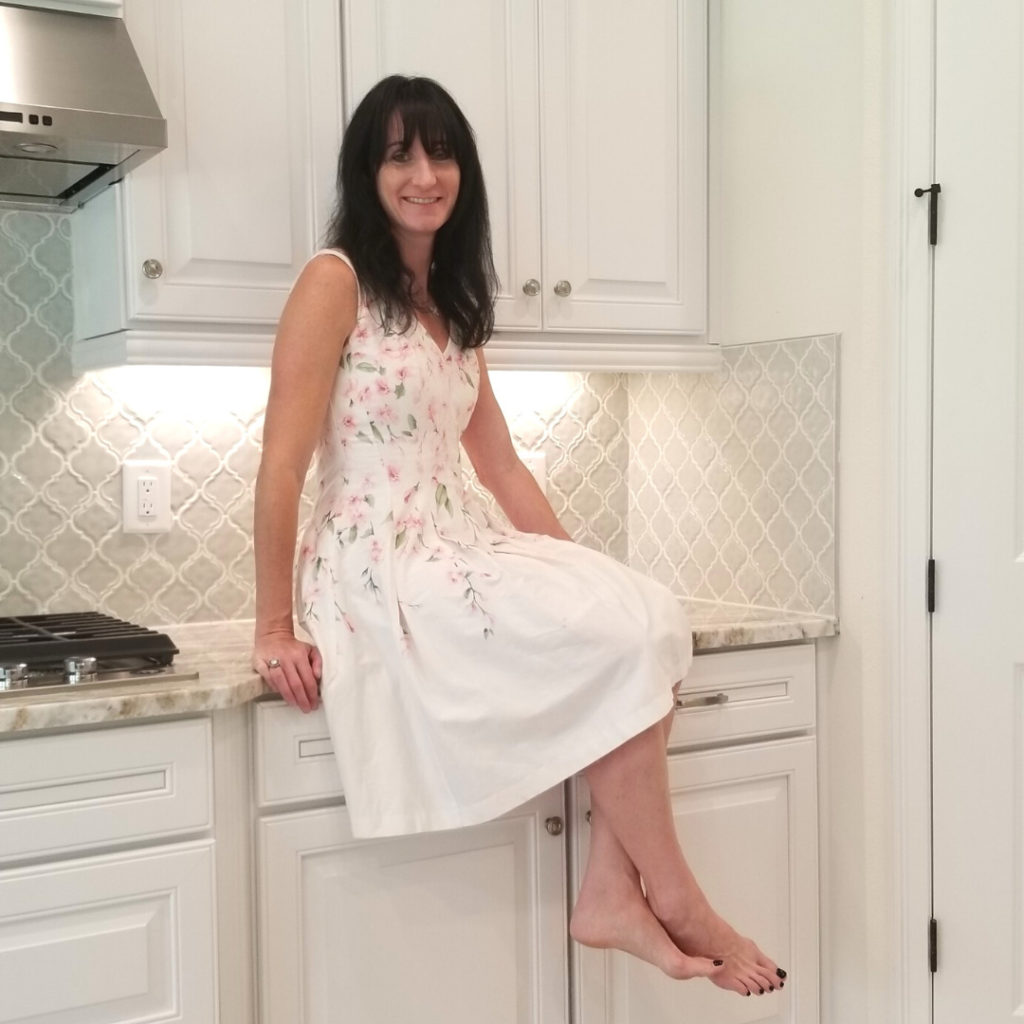
- Name: Cynthia J.
- Diagnosis (DX):
- Breast Cancer
- Invasive Ductal Carcinoma
- Breast Cancer
- Staging: 2B
- Symptoms:
- Architectural distortion on mammogram
- Age at DX: 52
- Treatment:
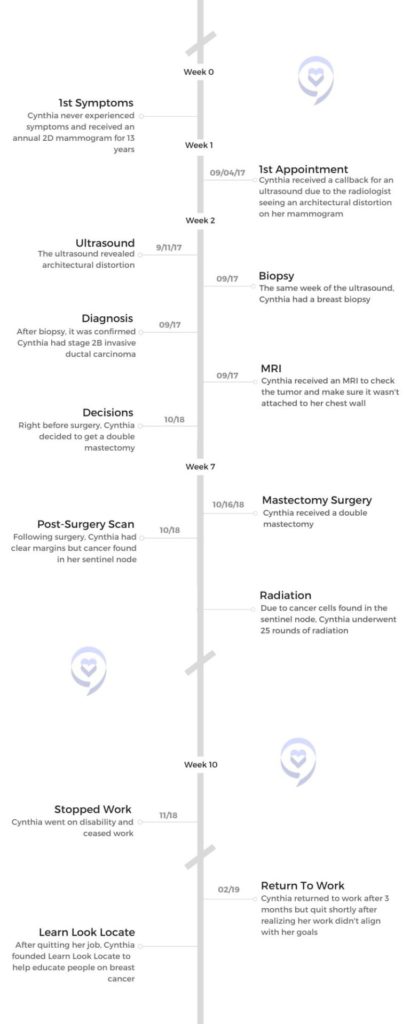
I was never educated on the risk factors of dense breasts, so I decided to start a global movement myself because I feel like this is a piece of the puzzle that is definitely missing.
Cynthia J.
This interview has been edited for clarity and length. This is not medical advice. Please consult with your healthcare provider for treatment decisions.
Diagnosis
Tell us about yourself
I am Cynthia Jordan and I am a breast cancer survivor, stage 2B. I am passionate about hiking and educating women about their breast health. I love Goldendoodles, biking, and tennis. And I’d say I’m a pretty positive person despite it all.
Did you have any symptoms?
Never. I got normal mammograms for 13 years and had no sign or symptom that I was walking around with a walnut-sized tumor. I was never informed that I needed additional screening. I was never educated on the risk factors of dense breasts, so I decided to start a global movement myself because I feel like this is a piece of the puzzle that is definitely missing.
I had done numerous breast cancer campaigns in my lifetime and felt completely uneducated and unaware of how complex this disease is. I started Learn Look Locate and it’s become a global movement because it needs to be done. Breast cancer, in many ways, can be silent, painless, and misdiagnosed. It’s on the rise so much. I don’t think people are aware of how many people are getting hit with this.
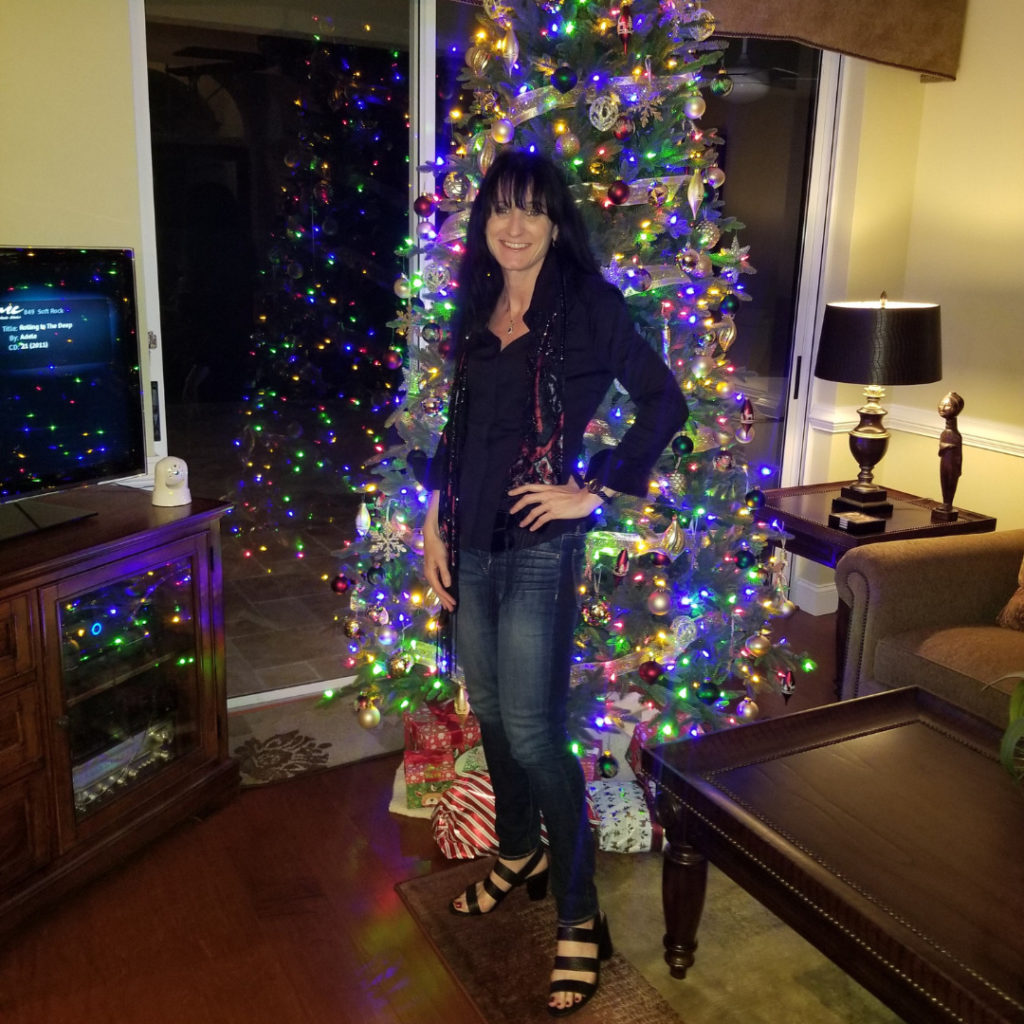
I was never educated on the risk factors of dense breasts, so I decided to start a global movement myself because I feel like this is a piece of the puzzle that is definitely missing.
What did you think when your mammograms revealed you had dense breasts?
Nobody sat down and educated me and said, “You have dense breasts. You need supplemental screening.” So I had a walnut-sized tumor that was missed for possibly 5 years.
I got letters that said I had a normal mammogram with dense breasts. This is how uneducated and stupid I felt – I was like, at least they’re not fat, and I went on my merry way. I had no idea that I was walking around with some sort of a ticking time bomb because of the lack of education.
What’s happening nowadays is even women like myself who are getting normal mammograms – and there are so many that aren’t – are not educated to turn to their gynecologist and say, “I got this note. It says ‘dense breasts.’ What does this mean?” Nobody sat down and educated me and said, “You have dense breasts. You need supplemental screening.” So I had a walnut-sized tumor that was missed for possibly 5 years.
A lack of education on breast health
I’m not special. I will tell you my story. I’m only [telling] my story for more education, but in a way that resonates. Because if we don’t do this in a way that women are going to really pay attention, they’re going to walk around with late-stage breast cancer with dense breasts and not be aware that they need to advocate for themselves.
I honestly don’t care how busy a doctor is. If they can’t give a patient like myself the time to really educate me, something’s wrong. Education, in my opinion, is so lacking – from prevention to genetic testing, to understanding the depth of what mammography is and what it’s becoming. Artificial intelligence is now helping radiologists detect cancers more accurately and helping with reducing callbacks, which is very stressful for women. I could go on for hours about the journey of [what happens] once you get hit with this.
The rise in breast cancer cases
Many of us, including myself, are walking around thinking this is not going to happen to us. But not only is it happening, it’s happening to more women in their 20s and 30s who have no access to screening whatsoever.
I never knew. I had no idea it was walnut-sized, 3.7cm. I was not aware that while I was hiking and biking and living my life so normally, I had a tumor. That is the scary part about this disease. For many of us, it can be very silent and very painless.
It wasn’t until I got that letter that said, “We see something suspicious, you need to come back.” I have no family history of breast cancer whatsoever. 80 to 85% of women who get diagnosed have no family history of breast cancer. That is a very high percentage.
Many of us, including myself, are walking around thinking this is not going to happen to us. But not only is it happening, it’s happening to more women in their 20s and 30s who have no access to screening whatsoever. So I never felt it and I never once did a self-breast check. I blew it. I’d never thought I needed to. It just wasn’t talked about.
When did you discover something was wrong?
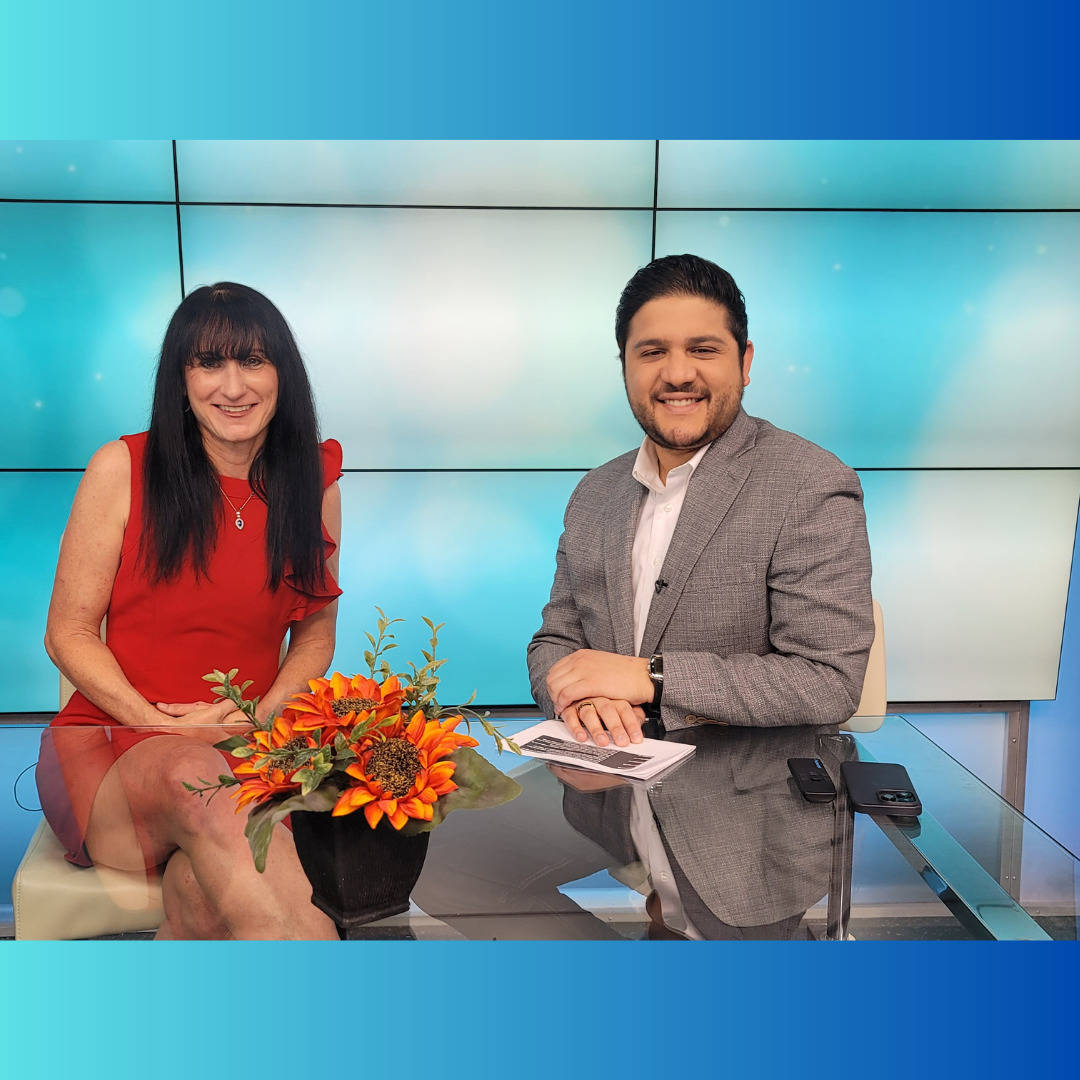
In 2018, when I got diagnosed, that’s when I got a letter saying, “We see an architectural distortion.”
They called me back and I got the ultrasound. The ultrasound technician can’t tell you what they’re seeing. All I knew was she looked at me and I looked at her and she gave me a Kleenex, and I knew I was on my way to a very difficult time. That’s how I knew, and then I got the biopsy.
How did you react to your diagnosis?
I got diagnosed on 9/11, which was really hard to process because that day is incredibly important. Because they showed me on the screen, I was in shock. I did not want to believe it. I think it’s all the uncertainty of not knowing what stage is it, do I need chemo, and the anxiety around the word cancer.
I was hysterical. I was screaming, “Take me to Moffitt!” The cancer center in my area. You can’t process the sounds of those words. I still to this day can’t believe it. My father did have lung cancer, so it’s not like the word cancer wasn’t part of my world.
It’s just too many young women getting this. I have no sympathy for myself because the young women don’t deserve this. We’ve got to find a way to stop it, get ahead of it.
»MORE: Patients share how they processed a cancer diagnosis
They pulled up on a black screen and blew up the imagery. They said, “It’s 95% [likely] that it’s breast cancer.”
What were the next steps?
My gynecologist was leaving the practice and she said, “Good luck.” Another one bites the dust, is how I felt. Then I went to get the biopsy within the gynecologist group and they did the biopsy.
I actually knew I had breast cancer before I had the biopsy because I was so adamant to ask them. So they pulled up on a black screen and blew up the imagery. They said, “It’s 95% [likely] that it’s breast cancer.” I sat there getting a needle, which is very painful, and they said, “You’re doing great.” I said, “You just told me I have breast cancer.”
Treatments
What treatments did you undergo for breast cancer?
I had small boobs so nobody was going to miss them. They thought a lumpectomy would be silly and we might as well just get them off, and I wanted it off.
A couple of days later, I called and said, “Take them both off.” The breast surgeon had said, “You shouldn’t take off healthy breast tissue.” Ironically, after the surgery, I had atypical hyperplasia which means precancerous cells in the healthy breast. So this might have happened again. She said, “Good call.”
I wound up getting radiation because I did have cancer in my sentinel node, which was a surprise to the doctor as well. It was very small. I had 25 rounds of radiation. The stiffness is very painful.
»MORE: Read more patient experiences with surgery
Did you have any other side effects from cancer treatments?
I did develop a severe skin allergy. I am now severely allergic to anything that has fragrance and this has never happened to me in my lifetime. If perfume gets on my skin or Lysol disinfectant wipes, my body will break out into severe sores that are so painful that I have to scratch them almost until they bleed. I’m very fortunate that I did not need chemo, but for a lifetime now I have to be extremely careful. My whole system got whacked out.
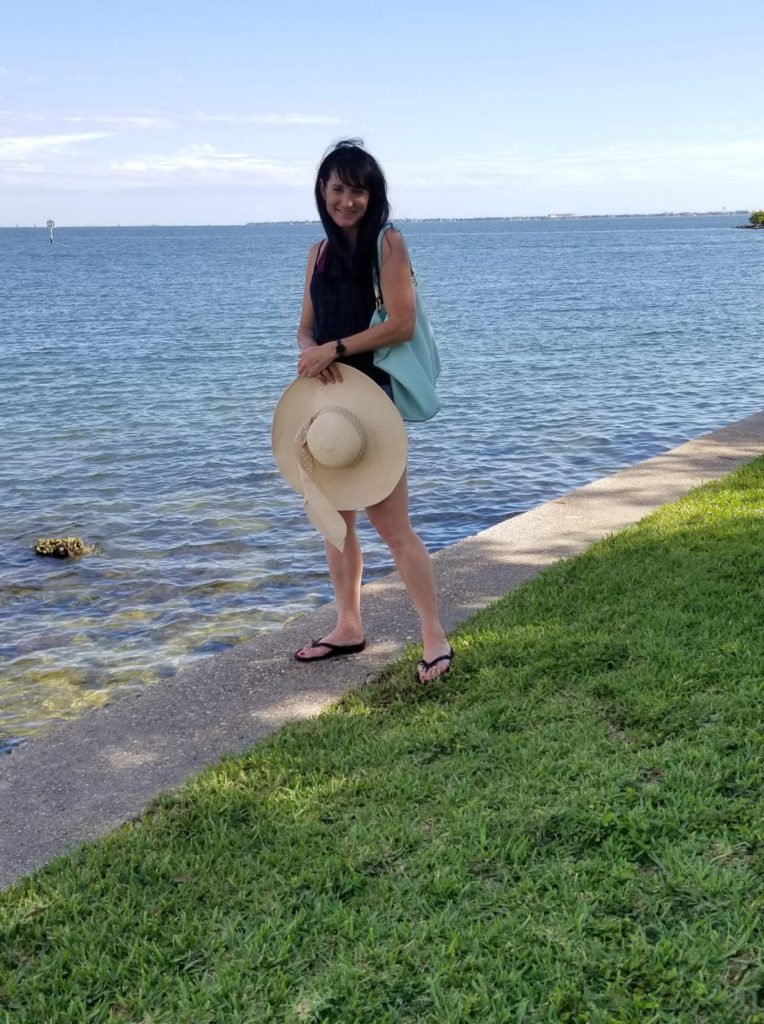
“The body and the nerves are cut, so they don’t know what to do. Nobody talked about this. It’s like, ‘Oh my God, what’s happening to me?'”
I want anyone who’s listening to this to recognize that radiation does upset the immune system. I asked, “How does this happen?” [My] dermatologist said that our bodies develop allergies at any point in time. Then they’re there forever, which is really sad.
»MORE: Cancer patients share their treatment side effects
Describe your mastectomy
Basically, they removed them. You go to sleep and they call it “Batwing.” They strap you in, then you wake up and you’re in a really tight corset. Then you have these – I’m not going to candy-coat it – really disgusting drains that are inside you to drain out any excess fluid.
Through my work at Learn Look Locate, I understand now, what that means. The body doesn’t know what to do so this is very foreign. You wake up in this tight corset and you’ve got the drains for a couple of weeks and you’ve got to have somebody help you drain them out. To me, it was so gross.
Then there’s the pain. The body is healing and trying to figure out what’s going on. Why I do what I do with Learn Look Locate is to educate women, because I felt like there were bugs all over my body. Nobody explained that that is called phantom nerve pain. The body and the nerves are cut, so they don’t know what to do. Nobody talked about this. It’s like, “Oh my God, what’s happening to me?”
Over time, I now feel somewhat normal. I still feel, even right now, duct tape. I don’t have duct tape on me, but I feel like there’s duct tape on my body because the scars are tight and you can’t feel. If you have an itch, many women will agree with me that you can’t feel anything.
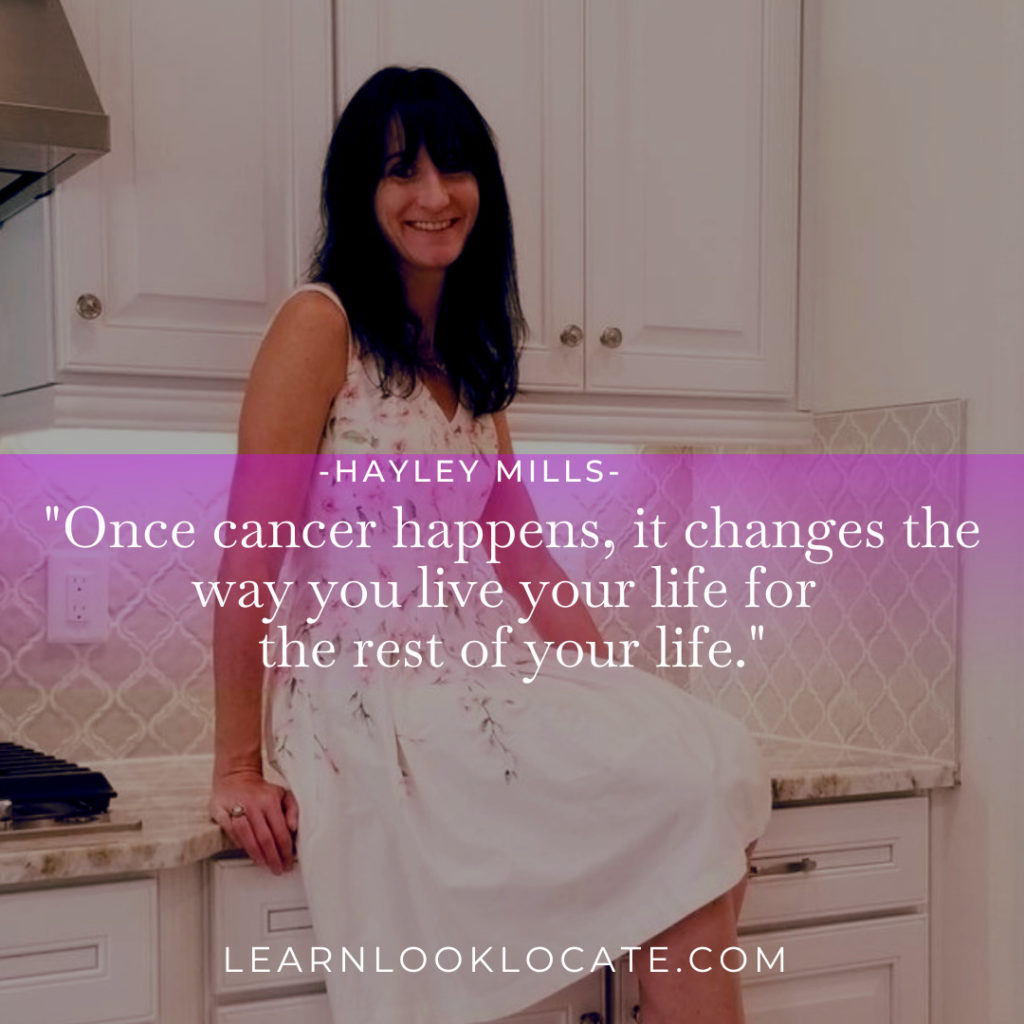
Options available to breast cancer patients
Thank God, with the work that I’m doing with doctors like Dr. Anne Peled, who developed sensation-preserving mastectomies, she is a survivor herself. So, women who are listening, I want you to know that there are a lot of advances being made.
They’re taking nerves from other places and being able to put them into your breast area. I didn’t know anything about this, so a lot of great stuff. A lot of that is on my website at Learn Look Locate, the cutting-edge treatments and advances going on. It’s really important that we are aware. We didn’t know about restorative tattooing. I didn’t know about DIEP flap reconstruction. Again, all of this I have at the ready because I want women to know there are options, there are choices.
Women who are listening, I want you to know that there are a lot of advances being made.
Did you get scans after radiation?
I don’t think I got a scan afterward. I had the surgery on October 16th, radiation ended at the end of January, then they checked me a couple of times. That’s the part most survivors would tell you, then you’re on your way and you’re supposed to be normal. It’s not so easy. I’m trying to figure out how to navigate the new normal and your identity.
So it’s just normal follow-ups. You see the breast surgeon and I’m about 4 years out. My goal is to help inspire people that they can get through this, that it’s not easy, and that we reach out and try to share our stories so that we feel connected and understood.
Mammograms & Screenings
What’s the difference between 2D and 3D mammograms?
2D only looks in two-dimension when they’re looking at the breast and 3D is lots of slices of imagery and then layer artificial intelligence on top of that. They can detect cancers so much more accurately having the 3D. I don’t know for sure because I didn’t have it, so I don’t know, but why wasn’t I even offered it?
The mindset of “I don’t have family history” is unbelievably strong. I should make a post about this because I am that person. So many of us feel that if we don’t change that mindset, women will not ask for 3D, understand the power of artificial intelligence and get ahead of this in a way that you’re advocating for yourself so that you can be detected early.
How often did you get a mammogram?
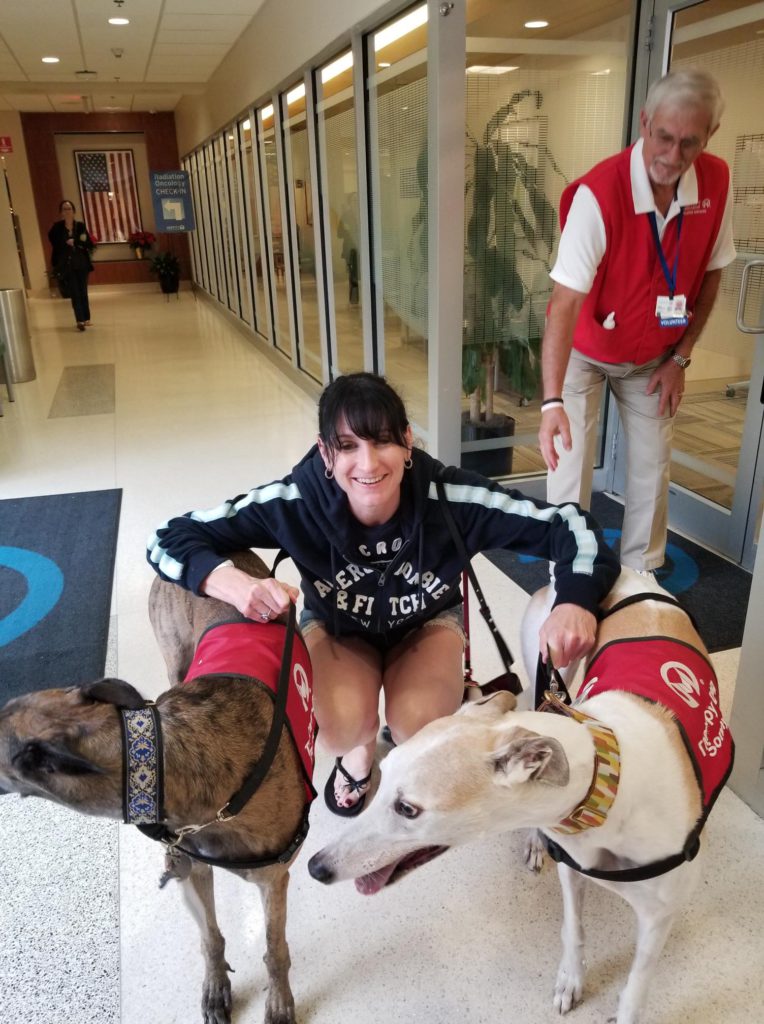
Every year I did. I’m not one of those women that missed.
A woman that I met at Kohl’s the other day said, “I haven’t gone in 4 years. It’s too expensive.” This is what’s going on out there.
I don’t want to scare people, but I want to educate them and I want them to realize that I never felt sick. In some cancers, people see symptoms. I had no symptoms and I had no way of truly knowing.
A ribbon is not awareness. It’s just not and I love that we have them, but it’s not doing the job. It’s time we wake up and realize that when you break down this disease, the layers and the levels of what is going on are never-ending on the good and the bad.
Understanding cancer grading and staging
I asked the cancer center, “How long was the tumor growing?” Possibly 5 years. Don’t quote me on this, but I want to make sure I say it correctly. I have learned that it takes up to 1 to 2 months for a breast cancer cell to divide and it takes a long time for a tumor to be detected. For it to be where you can feel it could take a long time.
People need to understand that just because the size of the tumor – mine was quite large – that doesn’t mean that it’s aggressive. A small tumor could be very aggressive, so there’s a lot of misconception.
I want to help people understand the difference between staging and grading. Staging is, did it leave the body I was staged to be? Yeah, it left. However, if your grade is 1, looks more like normal cells, but still cancer cells. But if you’re grade 3, that’s much more aggressive. Nobody sits down and really explains that to you, really understanding your pathology report.
I did read my mammogram and I can’t believe that in 2017 I had a normal mammogram, yet there was a tumor there
On my website, I have a pathologist and I interview her. If I had had this when I was diagnosed, all the questions that went in my head, I didn’t understand any of this. What is invasive ductal carcinoma mean? DCIS needs more awareness. I have a whole page on types of breast cancer with faces behind it. Survivors were telling their story with triple negative, triple positive, and lobular. Were people behind these statistics? That’s also part of my work.
Did you ever ask your doctors how they missed the tumor previously?
The gynecologist left and I didn’t start this till maybe 7 months afterward. I didn’t really go back. I did read my mammogram and I can’t believe that in 2017 I had a normal mammogram, yet there was a tumor there. Think about that for a second. It’s pretty mind-blowing. 2018 is when I got diagnosed. In this, this tumor was hidden. I never did a self-breast check. Even if I did, what am I looking for?
The importance of advocating for yourself as a patient
Speak up for yourself and ask for the supplemental screening, especially for those that have dense breasts. I did a post on TikTok about this. It has 200,000 views. It was about, if you get this little letter that says you have dense breasts, it’s a red flag. Please ask for supplemental screening. Look what happened to me. Don’t walk away and think you’re okay. If people say it costs money, that’s where you talk about charities and stuff like that.
Somebody should help women get that supplemental screening. If companies are going to get behind the ribbon and donate, get behind another screening for the woman who has the dense breasts letter. That’s a great idea.
»MORE: How to be a self-advocate as a patient
Reflections
I’m trying, in my survivorship, to educate so that we are empowered with the knowledge of understanding this very complex disease.
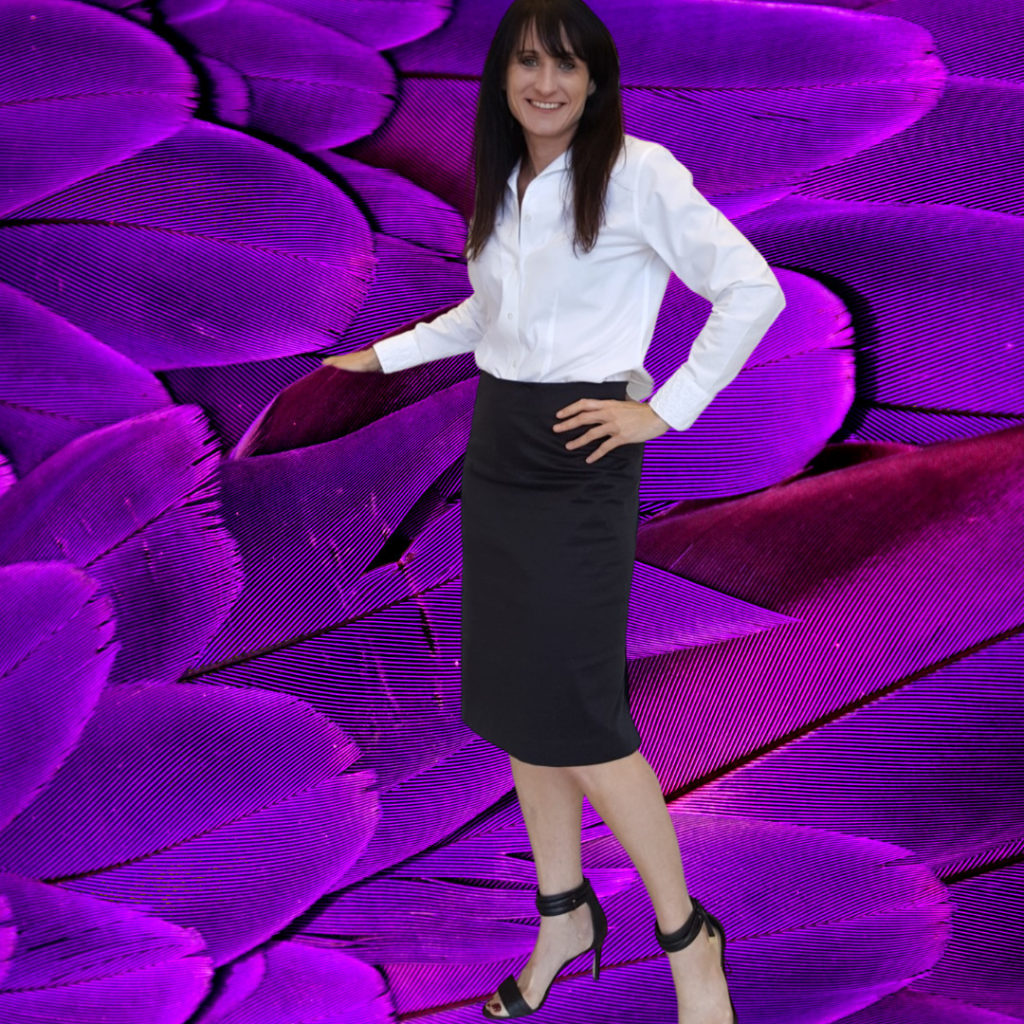
How did you cope with your diagnosis?
I don’t think people really understand that this is forever. And because of the work I do, I really live it. You need to try to move on. You need to try to not think that reoccurrence could happen. You need to really thank yourself.
Also, look at some of the positives that have happened. I wouldn’t be sitting here talking to you. The impact that I’m having on women globally and men and doctors working together to help change this. It’s very much like what you guys are doing.
We’re people and this has been hard. If we don’t make it real and we don’t share the emotional side, then this is a wash. You can’t expect to have body parts removed and see yourself in the mirror every day and think, “I’m okay.” No, it’s not always the case.
Survivorship is a mental game in some ways. I have a lot of gratitude for being alive because there are so many young people dying. I don’t know why this is happening, but I have survivor’s guilt. I feel it’s important that every day we are thankful that we’re cancer free.
There are so many people getting hit with this and it’s not our fault. Our bodies just made genes that we didn’t know what to do with, and they kept copying them. I’m trying, in my survivorship, to educate so that we are empowered with the knowledge of understanding this very complex disease.
What inspired you to start Learn Look Locate?
I think my biggest aha moment was [learning] what does a tumor feels like. How are we supposed to know? We have no idea. I was a fortunate woman to get mammograms. However, I was only getting 2D. I should have gotten 3D. So forget the education, what about young women who don’t have a concept of what a tumor could feel like?
I started this because I couldn’t sleep at night saying, “Wait a second. If I didn’t know this, then I bet there are a lot of people that don’t know this.” So I reached out to many doctors and one of them actually said she carries a small, jagged rock, smaller than a dime, to show women to feel what a breast cancer tumor could feel like. And that is my aha moment.
I developed a post that shows a dime and a little stone in bright colors that says, “What could a tumor feel like?” I post this often. Then I started connecting with patients and sharing stories. If we don’t share our stories, other women aren’t going to understand breast cancer shows up in many different symptoms.
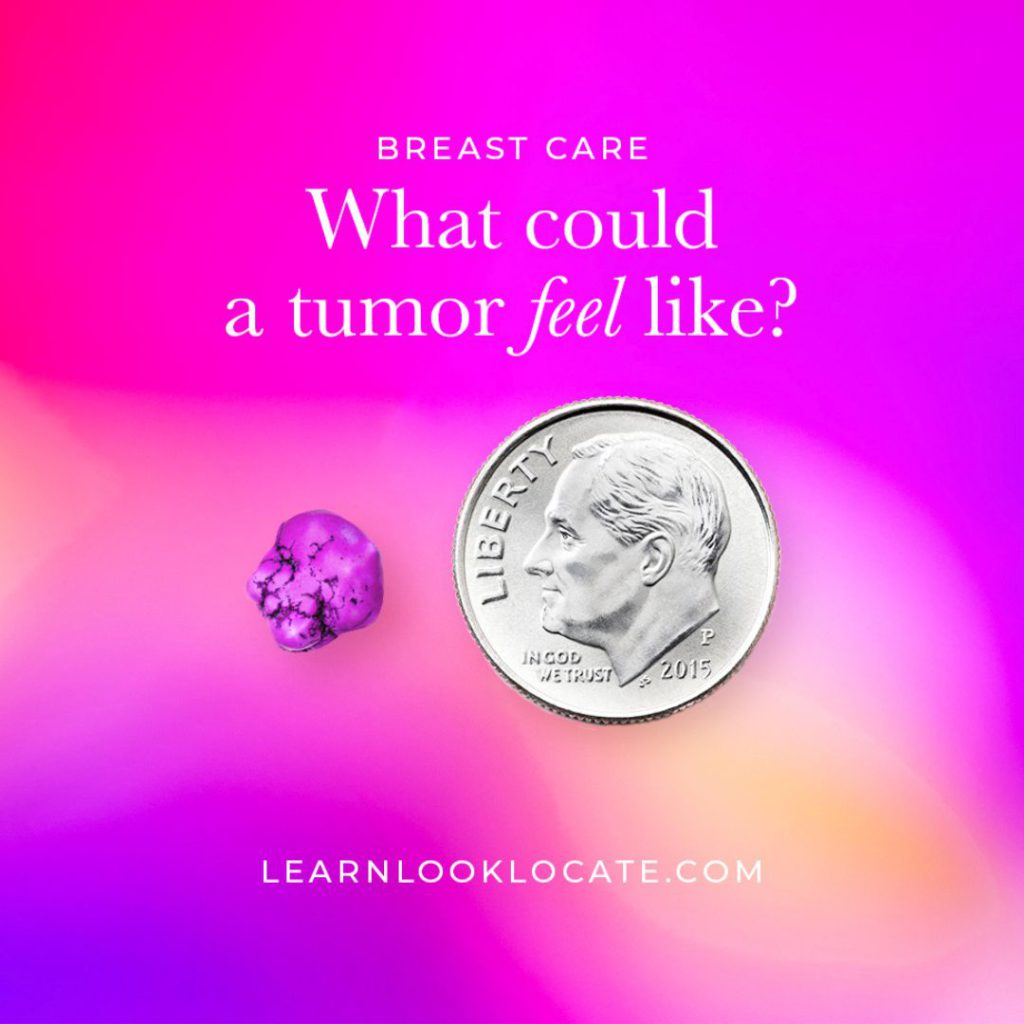
Paget’s disease needs so much more awareness, inflammatory breast cancer, and lobular breast cancer. It’s ridiculous. Then, working globally to bring people’s voices forward and creating a platform and a community for people all over the world to come to, to feel inspired and educated and connected, because I felt very alone. I felt very uneducated, overwhelmed, and scared, so I started this.
Where did you turn when you learned you had breast cancer?
I have a very strong affiliation with Imerman Angels. They provide 1 to 1 mentor support and they are unbelievable. I was educated through them, through my angel. [I asked them questions]. How do I know if I need chemo? There’s a test for that. How do I know if I need to stay on endocrine therapy? There’s a test for that.
I am obsessed with the fact that there are a lot of companies and some amazing physicians doing incredible cutting-edge work, especially with brain metastases. It is a very difficult topic. However, I work with my radiation oncologist for Learn Look Locate, Dr. Ramji Rajendran in Chicago, and there are treatments like RapidArc® and Gamma Knife. These are types of radiation that are only offered at certain centers. But if we don’t get this information out there, some woman who’s living in a rural area might not know and it could be life-saving, so I want to bring this type of information to the forefront in a way that people can understand and relate not only to survivors but to the doctors.
Dr. Ron Israeli, the plastic surgeon who is part of my mission and is so kind and educating women on breast implant illness, helping with flat advocacy, which needs so much more work. I could go on and on because every day between genetic testing and screening, education is lacking. I’m trying to bring it all in one place – by myself, which is really hard – to make it easier on people to understand and get ahead of this and be comforted with guidance along the way if you are diagnosed.
Building a cancer community
I just want people to know I started Learn Look Locate because I know for myself that I Googled like crazy and there’s a lot of information out there. That is why I’m working with top physicians to help me bring this information to the forefront.
I myself have an online community that is moderated by a medical oncologist. I just launched this. It’s associated with Dana-Farber and other cancer centers so people can come, patients being treated throughout the country so you can connect and relate. Just take a deep breath and know that there’s a lot of us that have gone through this.
The importance of sharing your cancer story
Your work is incredible on all levels and I’m very touched by the work that The Patient Story is doing. I think it’s lovely. My father had lung cancer. I believe that every cancer should have a place that is warm and welcoming and connecting and inspiring and take one day at a time I wish I had someone say that to me because I never thought I’d be in the place where I am now.
Whoever is watching this, I’m going to give you a big hug because that’s what I needed, and say you’re not alone.
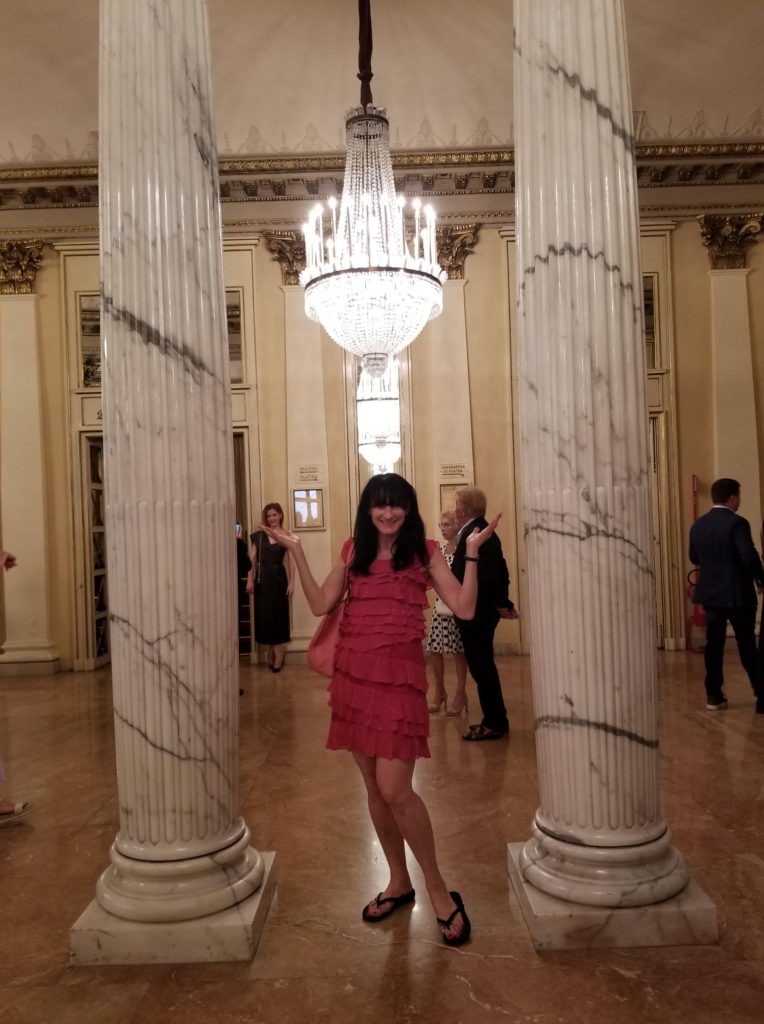
I never thought I’d get out of this very dark place, and it was dark and scary. I guess fear goes like this over time, but knowledge is power. And for me, the more I gained information about my disease and my journey, it put me at peace.
That’s why I like Learn Look Locate. Because if you learn, you can feel a little bit more empowered. Don’t let someone tell you you’re ER-positive and you need this, that, and the other. Get in there and understand it so that you can know what your treatment is and then connect with people who’ve been there because they can help you too.
Whoever is watching this, I’m going to give you a big hug because that’s what I needed, and say you’re not alone.
Where can people find you and the work you’re doing?
Anyone can follow me. Pinterest, Instagram, TikTok, and LinkedIn. The website is my legacy. That’s my closing word. It’s my legacy, so that nobody goes through this scared and alone and uneducated and not connected.
More Breast Cancer Stories
Amelia L., IDC, Stage 1, ER/PR+, HER2-
Symptom: Lump found during self breast exam
Treatments: TC chemotherapy; lumpectomy, double mastectomy, reconstruction; Tamoxifen
Rachel Y., IDC, Stage 1B
Symptoms: None; caught by delayed mammogram
Treatments: Double mastectomy, neoadjuvant chemotherapy, hormone therapy Tamoxifen
Rach D., IDC, Stage 2, Triple Positive
Symptom: Lump in right breast
Treatments: Neoadjuvant chemotherapy, double mastectomy, targeted therapy, hormone therapy
Caitlin J., IDC, Stage 2B, ER/PR+
Symptom: Lump found on breast
Treatments: Lumpectomy, AC/T chemotherapy, radiation, hormone therapy (Lupron & Anastrozole)
Joy R., IDC, Stage 2, Triple Negative
Symptom: Lump in breast
Treatments: Chemotherapy, double mastectomy, hysterectomy
